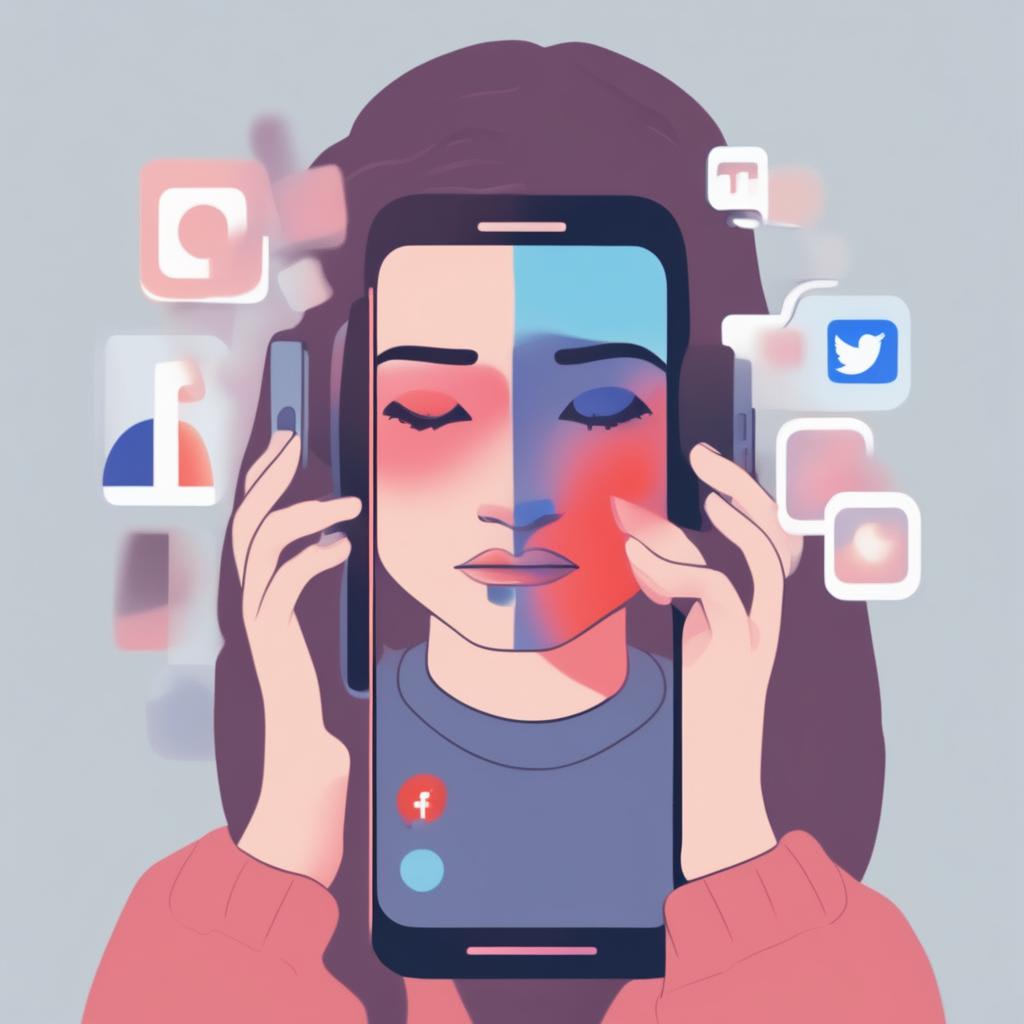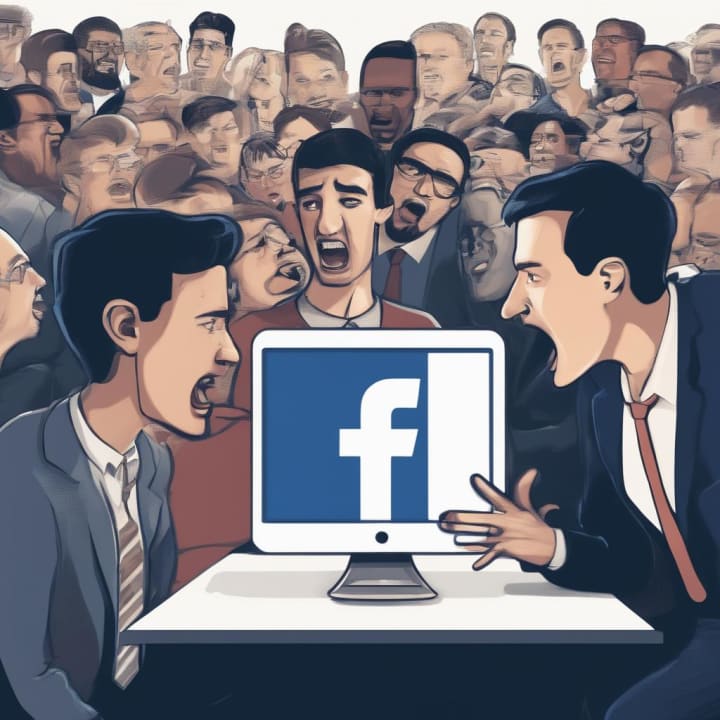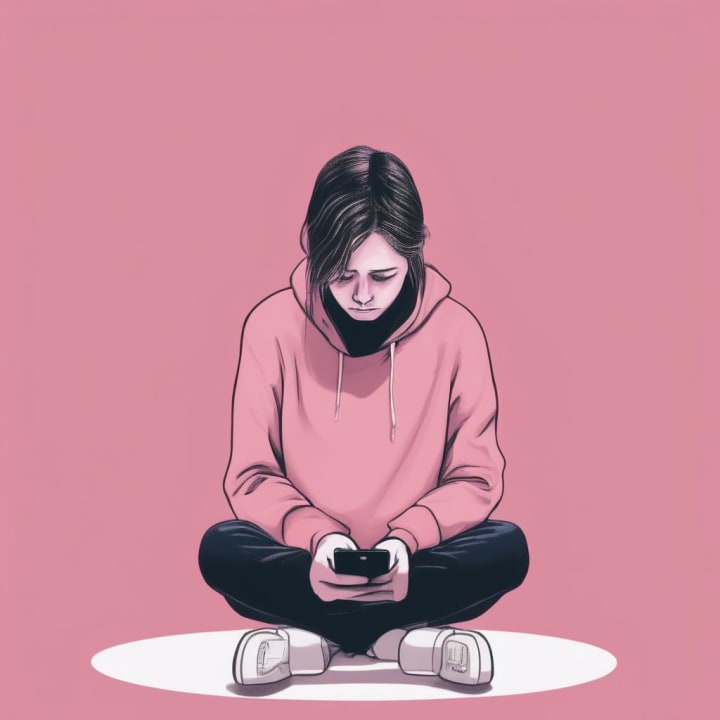Social Media and Mental Health
A Deep Dive into Facebook, Instagram, and TikTok

In today's digital age, social media platforms like Facebook, Instagram, and TikTok have become an integral part of our daily lives. These platforms offer a space for self-expression, connection, and entertainment. However, as their influence grows, so does the debate about their impact on mental health. Let's delve into the intricate relationship between these platforms and our well-being.
The Double-Edged Sword of Social Media
At its core, social media is a tool for connection, a digital bridge spanning across continents and cultures. Remember the last time you reconnected with an old friend on Facebook, laughing over shared memories? Or when you stumbled upon a vibrant community on Instagram, united by a shared hobby or passion? Perhaps you learned a dance routine or a quirky life hack on TikTok, joining millions in a shared digital experience? These moments, fleeting yet profound, underscore the positive aspects of social media – fostering deep connections, inspiring boundless creativity, and broadening our horizons in ways previously unimaginable.
However, lurking beneath this digital utopia are shadows of doubt and discontent. The same platforms, while offering glimpses of joy, can also be relentless sources of stress, anxiety, and self-doubt. The constant barrage of picture-perfect lives, sun-soaked luxurious vacations, and seemingly flawless, airbrushed bodies can make even the most confident among us feel inadequate. The insidious pressure to curate a perfect online persona, to live up to the unspoken standards of the digital realm, coupled with the pervasive fear of missing out (FOMO), can lead to feelings of isolation and loneliness, paradoxically deepening in the heart of our hyper-connected world.
Facebook: The Comparison Game

Facebook, with its vast user base of over 2.8 billion monthly active users, has evolved from a simple college networking site to a global digital scrapbook of our lives. It's a platform where memories are stored, events are celebrated, and news is disseminated. While it's heartwarming to see friends and family achieve milestones, celebrate anniversaries, or even share snippets of their daily routines, it's also alarmingly easy to fall into the trap of comparison.
Every engagement announcement, job promotion, exotic vacation photo, or even a simple weekend outing can inadvertently become a yardstick against which we measure our own accomplishments and life's journey. Studies have shown that prolonged exposure to such comparative content can lead to "Facebook envy," where users feel envious of the happiness and success of others. This constant comparison, often with idealized versions of people's lives, can erode self-worth, foster feelings of resentment, and amplify feelings of inadequacy and dissatisfaction with one's own life.
Instagram: The Pursuit of Perfection

Instagram, boasting over a billion active users, stands as a visual-centric platform that has dramatically reshaped the landscape of digital self-expression. It has birthed a new era of influencers, individuals who wield significant power in setting trends across fashion, beauty, and lifestyle domains. A report from the Royal Society for Public Health in the UK ranked Instagram as the worst social media platform for mental health, highlighting the intense pressure it places on young people to conform to idealized versions of beauty and lifestyle.
While numerous influencers champion messages of positivity, authenticity, and body positivity, the platform's inherent design, with its emphasis on visuals, often perpetuates unrealistic beauty and lifestyle standards. The ubiquitous filters, meticulous edits, and carefully staged photos present a hyper-real version of reality, pushing users towards a relentless pursuit of perfection. This constant chase, coupled with the fear of not measuring up, can lead to heightened anxiety, body image issues, and a significant dip in self-esteem
TikTok: The Race Against Time

TikTok, with its staggering 1 billion monthly active users, has revolutionized the digital space with its rapid content consumption model. Its signature short, catchy videos, often spanning mere seconds, provide users with a whirlwind of entertainment, humor, and creativity. Yet, this brevity also fosters a culture of instant gratification, where attention spans are continually shrinking, and the thirst for novelty is insatiable. For creators, the allure of virality becomes a double-edged sword. While the potential for global recognition is immense, the pressure to consistently churn out captivating content is relentless, leading to burnout for many.
Furthermore, TikTok's sophisticated algorithm, designed to keep users engaged, often serves them content mirroring their existing beliefs and preferences. This can inadvertently create echo chambers, where users are rarely exposed to contrasting viewpoints or diverse narratives. Such environments can not only stifle personal growth but also reinforce and amplify existing biases and negative thought patterns.
Finding Balance in a Digital World
Recognizing the potential pitfalls of social media is the first step towards a healthier online experience. Here are some tips to maintain a balanced relationship with these platforms:
- Digital Detox: Allocate specific times during the day to unplug. Use this time to engage in offline activities you love.
- Curate Your Feed: Follow accounts that inspire and uplift you. Don't hesitate to unfollow or mute content that negatively impacts your mental well-being.
- Reality Check: Remember that social media is a highlight reel. Behind every perfect photo is a story, struggle, or unglamorous reality.
- Engage Mindfully: Use social media with intention. Whether it's to learn, connect, or relax, be mindful of the time and energy you invest.
Conclusion
Social media platforms, including Facebook, Instagram, and TikTok, have reshaped the way we connect, share, and perceive the world around us. While they offer numerous benefits, it's crucial to be aware of their potential impact on mental health. By engaging mindfully and prioritizing well-being over likes and shares, we can harness the positive power of these platforms and protect our mental space. After all, in a world of constant connection, sometimes the most empowering thing we can do is disconnect and reconnect with ourselves.
About the Creator
Julius Georgy
Passionate about spotlighting trending topics, especially in health & wellness. Excited to share insights and connect with fellow health enthusiasts. Let's thrive together!






Comments
There are no comments for this story
Be the first to respond and start the conversation.